|
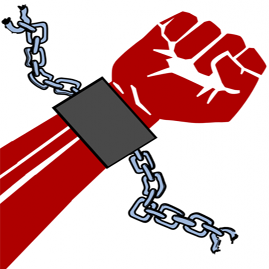 |
CRY FREEDOM.net
formerly known as
Womens Liberation Front
MORE INSIGHT MORE LIFE
Welcome to cryfreedom.net,
formerly known as.Womens
Liberation Front.
A website
that hopes to draw and keeps your attention for both the global 21th. century 3rd. feminist revolution as well and a selection of special feminist artists and
writers.
This online magazine will
be published evey month or if needed more often and started February 2019. Thank you for your time and interest.
Gino d'Artali
indept investigative
journalist,
radical feminist and activist
|
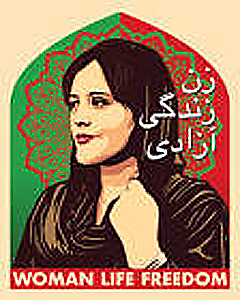 |
|
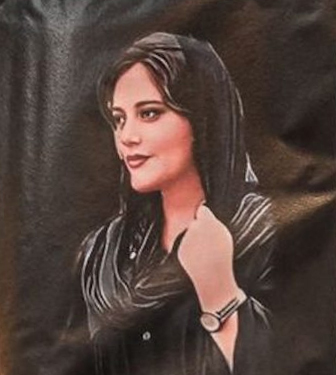

JINA MAHSA AMINI
The face of Iran's protests. Her life, her dreams
and her death.
In memory of Jina 'Mahsa' Amini, the cornerstone of the 'Zan.
Zendagi. Azadi revolution.
16 February 2023 | By Gino d'Artali
And also
Read all about the assasination of the 22 year young Jhina Mahsa
Amini or Zhina Mahsa Amini (Kurdistan-Iran) and the start of the Zan,
Zendagi, Azadi (Women, life, freedom) revolution in Iran
2022
and the latest news about the 'Women Live Freedom' Revolution per month in 2023:
July 15 -1--June
30 - 15--June 15-1--May 31 -16--
May 15-1--April--March--Feb--Jan
And
For all topics below that may hopefully interest you click on the
image:
all updates 27 June, 2023
|
'THE NO-HIJABIS
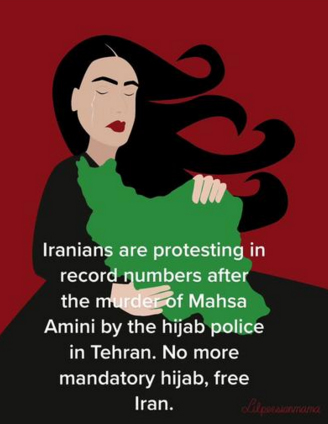
Updated |
'BIOLOGICAL

TERROR ATTACKS
AGAINST SCHOOLGIRLS'
Updated |
'IRANIAN JOURNALISTS
UNDER SIEGE'
 Updated
Updated |
'BLINDING
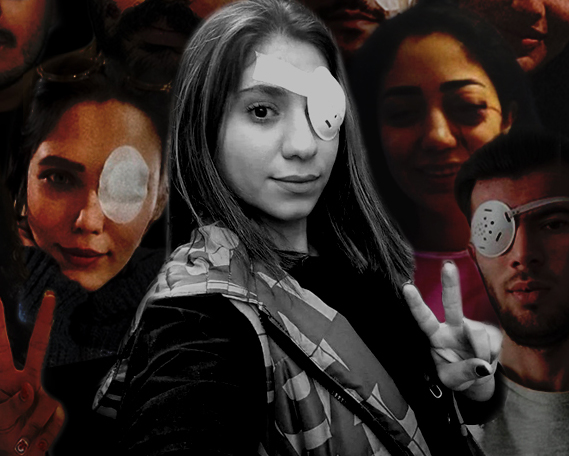
AS A WEAPON'
Updated |
'THE HANGING SPREE'
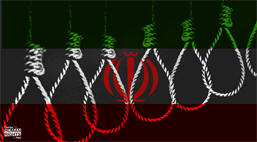
Updated
|
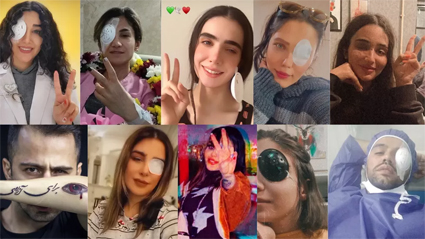
<Persian social media is full of young people who say they were shot in the eye
by security forces>
Iranwire - July 17, 2023 - By Faramarz
Mosavat, Citizen Journalist
<<Treated by a Veterinarian: A Woman Protester's Narrative
Countless people were injured by the Islamic Republic's security forces during
the nationwide <Woman, Life, Freedom> protests. This is the story of a woman who
was shot in a southern city in the early days of the protests.
***
<I didn't see the face of the shooter. He shot me from behind and at close
range,> says the woman, whom we shall call Senobar. Almost a year after that
fateful moment, she has decided to break her silence and talk about the physical
and psychological problems she has been suffering from. <A few days later, I saw
a video of that night, that hour and that location on one of the popular pages
of Instagram. There were three of them with three shotguns, and they fired three
times.>
The Night of the Shooting: <Run, Run!>
Senobar was among thousands of Iranians who were shocked and furious over the
September 2022 death in police custody of Mahsa Amini, even before calls to
protests had yet to appear on social media. <As protests became increasingly
likely, I started thinking more and more that I had to make a decision,> she
tells IranWire. <I asked myself: 'Do you go there if a crowd gathers somewhere?'
For a few days, I was confused and walked back and forth in my room. I asked
myself: 'Why aren't you doing anything? Why are you just sitting?' Eventually I
decided that I would feel bad about myself if I didn't respond to the situation
and didn't join my friends.> <A few girls and I went to one of the locations
where protests were to be held, but nothing was happening there. We decided to
go to a second location where we saw people standing there along with a large
number of armed agents. We were confused and we didn't know what to do. Little
by little we heard the sound of shots coming from a few hundred meters from us.
From this moment on, I couldn't clearly remember what happened and in what
order.> <I remember the voice of a boy who was shouting: 'Run! Run!....Wait! Go
that way.' Then somebody came from the other side of the street and gave each of
us a bottle of mineral water. The shooting had subsided a little, but we were
hit with teargas. We went to a corner to light up cigarettes. We had heard that
cigarette smoke would reduce the effect of teargas on the eyes. My hand was
shaking and I repeatedly dropped the cigarette. We again heard shouting and we
all panicked and ran into alleyways. As I entered the alley, the water bottle
felt too heavy. I dropped it so that I could run faster. It was at that moment
that I felt something hot running down at the back of my legs.> The voices are
still what Senobar remembers, for instance the voice of somebody who shouted
from a house in the alley: <Come here!> <We all went into the yard and somebody
closed the door. I had no idea how my companions were doing and this worried and
agitated me a lot. As I reached the entrance to the lobby of the apartment house
I felt that my knees were trembling, and walking became more difficult for me.
Then I saw blood on my white shoes. I had been injured by pellets. A boy and a
girl helped me to get up and we went to the apartment of a resident who insisted
on helping us. And my friends gradually arrived as well. One of them, a medical
student, took me and another wounded person to the bathroom of the apartment and
cleaned the injuries. We could still hear the sounds of gunfire in the street.>
Kind Doctors, Unkind Pharmacists
After the wounds were cleaned, a friend of Senobar called her parents and told
them what had happened: <My friend's parents came for us in their car. Then they
started admonishing us, asking why we had gone to the protests and why we had
made trouble....[the doctors] had a different opinion after they looked at the
wounds. One said they were just burns and nothing penetrated the skin. Another
one speculated that the wounds were caused by lead pellets. My friend's father
called a friend of his who was in the military and asked him about the types of
pellets they use to crack down on the protests. In short, his answer was that
they use different kinds of pellets. The anesthesiologist's diagnosis was that
the wounds were not simple burns. To treat the wounds, he said he needed
equipment he didn't have at home. So he told me to go home where he would visit
me the next morning with everything he needed.> One of Senobar's friends brought
her home: <Along the way, she tried hard to buy gauze, Betadine [used for skin
disinfection] and bandage, but the pharmacy refused to sell her these items.
That night, at the suggestion of another friend, we went to the clinic of her
friend who was a veterinarian. She said that they usually use these pellets to
shoot animals, so it's possible that a veterinarian surgeon would know better
how to solve this problem. He removed around 60 pellets from my legs before the
morning of the next day. To remove the rest of the pellets they needed to
anesthetize me, but this was not possible to do in the veterinarian's clinic.
During those six hours, they talked and chatted with me to distract me from my
pain. They also put a kitten next to me....the wife of the veterinarian cooked
me halva so that I wouldn't faint.> At home, she could not sleep in fear of a
raid by security agents and of being arrested: <The pain in my legs became worse
day by day, and the trauma of what had happened wreaked havoc on my mind. Three
or four days after the shooting, a friend who's a general practitioner decided
to give me a powerful painkiller, a morphine derivative. However, a prescription
by a specialist was needed To get this painkiller and, at the request of his
former student, a university professor wrote a prescription but once again the
pharmacy refused to sell it.>
Yoga, Medication and Continuing Struggle
Two weeks after Senobar was shot and when her fear of arrest subsided a little,
her legs were x-rayed: <The depth of the pellets is not clear in the pictures
and, therefore, they removed only three pellets after a few ambulatory surgeries
and local anesthetics were performed. An elderly doctor that had been a field
surgeon during the Iran-Iraq war suggested that I should not be in a hurry to
remove the remaining pellets and let the time take care of it. He said it would
take 10 to 15 years for the pellets to gradually leave the body. Since then I
have suffered from lead poisoning once and found out that the pellets were
indeed made of lead. That night I sprained both my ankles and the inflammation
of the ankles made the pellets all the more painful.> After two full months of
increasing pain, Senobar could go to physiotherapy: <When I tried physiotherapy
I had no specific problems, but after a few hours I felt that the pieces of
metal in my body were melting hot. That night I suffered from unprecedented
pain. These nights I calm myself a little with medication and with yoga.>
Besides physical and psychological problems, wounded protesters in Iran have to
deal with the financial consequences of their injuries. <I spend half of my
monthly income on medication and therapy,> says Senobar. <I work from 6 o'clock
in the morning until midnight, but I don't have enough money to pay the rent at
the end of the month. Sometimes I feel trapped in a box and being hurt from
various directions. In the past few months I've become a weaker person, both
physically and psychologically. Some of my former friends are afraid to get
together with me. Recently, I've been crying and getting angry quickly. I'm not
the same person I was and my companions have changed as well. I have no interest
in emigrating and, because of my love for this land and its people, I don't even
entertain the idea of leaving this country.>
Remorse No, Frustration Yes
Over the past 10 months, has Senobar ever felt sorry for going to the street?
Here is her answer: <I don't feel remorse but I'm frustrated....I would do the
same thing again but that doesn't mean I'm less frustrated. Nowadays, when I see
where we're standing, I ask myself: 'What was the point? You didn't reach your
goal'....and I answer myself: 'My reason for going out of my home at that time
was justified. When one is unhappy about the situation, one has to do
something.'> Despite what she has suffered, this woman protester believes that
if people return to the streets she would join them: <When the movement started,
a number of people went to the streets in the early hours and days, and this
gave confidence to the rest of the people. Last year I was one of the pioneers,
but this time I must be among the second group. I shall wait for the people to
return to the streets and then I will join them.> >>
Source:
https://iranwire.com/en/women/118576-treated-by-a-veterinarian-a-woman-protesters-narrative/
Iranwire - July 7, 2023 - by AIDA GHAJAR
<<Blinding as a Weapon (46): Trapped in the Limbo of Asylum Seekers
In the series of reports <Blinding as a Weapon,> IranWire presents the victims'
stories told in their own words. Some have posted their stories, along with
their names and pictures, on social media. Others, whose real names shall not be
disclosed to protect their safety, have told their stories to IranWire, which
can make their identities and medical records available to international legal
authorities and the United Nations Special Rapporteur on the situation of human
rights in the Islamic Republic of Iran.
....
This is the story of Vahed Roznavard, a Kurdish man who lost his eye during the
first weeks of last year's nationwide protests. For the past month and a half,
he has been residing in Turkey. He now hopes to reach a European country and be
granted asylum.
***
Shot from 10 Meters Away
Late on October 12, 2022, Vahed Roznavard and his friends joined other
protesters in the streets of Mahabad, West Azerbaijan province. While the
protesters' chants filled the air, riot squads attacked the crowd on foot,
motorcycles, and other vehicles, using tear gas and firearms. Roznavard and his
friends sought refuge in the nearby back alleys as the security force were
pursuing them through the streets. A masked attacker positioned 10 meters from
Roznavard pulled the trigger of his weapon and the young man collapsed to the
ground, with his face and upper body drenched in blood. His friends carried him
away amid the surrounding chaos. One pellet had perforated Roznavard's left
eyeball, while another projectile struck his right eyelid. Several bullets
remain lodged in his face, neck and upper body. Numerous accounts emerged of
injured protestors being arrested while seeking treatment in medical facilities.
That's why Roznavard and his companions embarked on a journey to Tabriz, the
capital of East Azerbaijan province. Roznavard spent one night at a hospital
there before undergoing surgery the following day.
The Youth of a Child Worker
Roznavard was born in 2001 and grew up in a village before eventually moving
with his family to Mahabad. As the youngest child in a family of seven, he began
working at a young age. By the time he reached 11 years old, he was already
juggling studies and work as a seller and as a stone miner.
The financial strain faced by the family compelled the young boy, who harbored
dreams of becoming a footballer, to drop out of school by the 10th grade. For
several years, Roznavard has worked as a hairdresser - a profession he loved.
However, after losing vision in one eye and experiencing weakening sight in the
other, he was unable to continue this career. With his livelihood becoming
increasingly precarious, constant threats from members of the paramilitary Basij
force further exacerbated his situation. That's why the young man decided to
embark on the arduous path of an asylum seeker. He fled to Turkey in May, but he
faces deportation when his visa expires in less than two months. Roznavard made
an attempt to illegally travel to Greece, but he was intercepted by Greek police
at the border. His belongings were confiscated, including his medical file and
eye medications, and he was subjected to physical violence before being sent
back to Turkey.
His Life Turned Dark
The memories of the moments he was targeted in the eyes reverberate through his
nightmares and plague his waking moments. Sleep eluded him for an extended
period of time, while his appetite dwindled. At times, thoughts of suicide
infiltrated his mind as he grappled with the profound difficulty of accepting
the atrocities he had witnessed and the unimaginable tragedy that had befallen
him. The loss of Mohammed Ahmadi-Gagash, a dear friend and neighbor who was
killed during the protests, also left a deep void in his life. In the face of
adversity, Roznavard often expressed a sentiment that encapsulated his
resilience: <I may have lost one eye, but the bereaved mothers should have the
final say about the attacker and his fellow aggressors.> >>
Source:
https://iranwire.com/en/blinding-as-a-weapon/118270-blinding-as-a-weapon-46-trapped-in-the-limbo-of-asylum-seekers/
copyright Womens'
Liberation Front 2019/cryfreedom.net 2023








